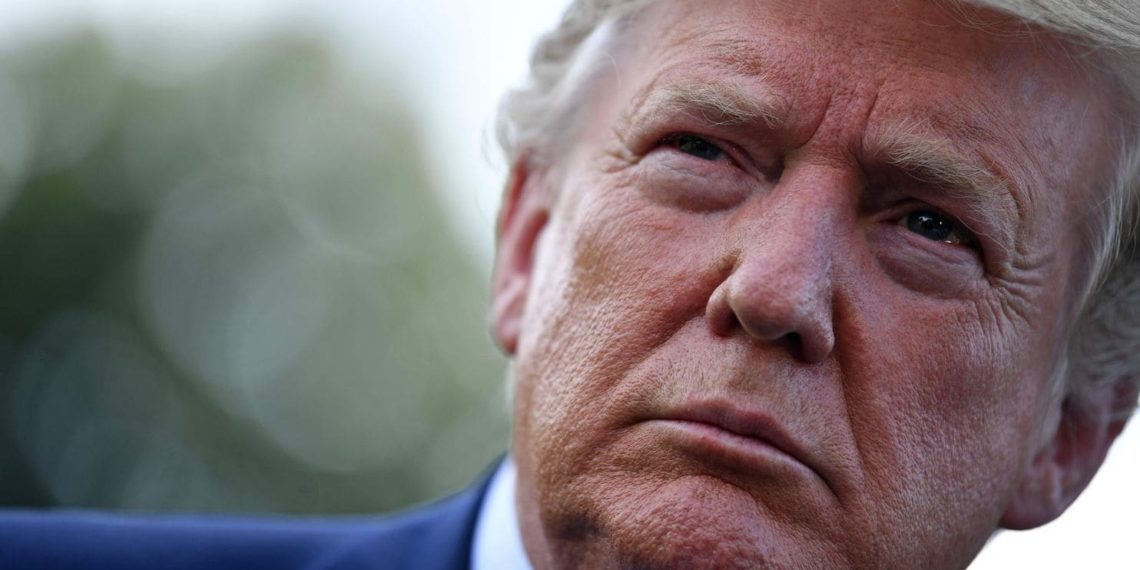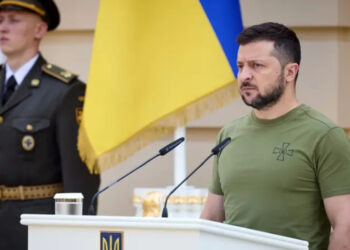The U.S. ambassador to the European Union told an impeachment hearing Wednesday that he was following the orders of President Donald Trump in seeking a “quid pro quo” from Ukraine.
Gordon Sondland – whose appearance before Congress is being watched especially closely as he was a Trump ally – said he believed the president was pressing Ukraine to investigate his potential 2020 rival Joe Biden.
Such assistance could constitute an “in-kind” campaign contribution, which is illegal to solicit or accept from foreign individuals.
“We followed the president’s orders,” Sondland said in his prepared testimony to an open hearing of the House Intelligence Committee.
He said that Trump forced U.S. diplomats to work with his personal lawyer, former New York mayor Rudy Giuliani.
“We did not want to work with Mr. Giuliani. Simply put, we played the hand we were dealt,” he said.
Ambassador Sondland: "Members of this Committee frequently frame these complicated issues in the form of a simple question: Was there a quid pro quo? … With regard to the requested White House call and White House meeting, the answer is yes." pic.twitter.com/BvAF9XuyGm
— House Intelligence Committee (@HouseIntelDems) November 20, 2019
Sondland said that Trump held off on offering a summit with Ukraine’s new president, Volodymyr Zelensky, as Giuliani demanded that Kiev publicly announce that it was investigating a gas company on which former vice president Biden’s son Hunter held a paid board position.
Giuliani also wanted Zelensky to investigate a widely discredited conspiracy theory in which Ukraine planted evidence on a server of Biden’s Democratic Party to show that Russia interfered in the 2016 election.
“Mr. Giuliani’s requests were a quid pro quo for arranging a White House visit for President Zelensky,” Sondland said.
Sondland said he “never received a clear answer” on why the United States suspended security aid to Ukraine, which is battling Russian-backed separatists, but that he “came to believe” it was also tied to the investigations sought by Trump.
“I was adamantly opposed to any suspension of aid, as the Ukrainians needed those funds to fight against Russian aggression,” he said.
“In the absence of any credible explanation for the suspension of aid, I later came to believe that the resumption of security aid would not occur until there was a public statement from Ukraine committing to the investigations of the 2016 election and Burisma, as Mr. Giuliani had demanded,” he said.
Sondland also said that after a meeting between Zelensky and U.S. Vice President Mike Pence, he told a Ukrainian official that the aid would “likely” be suspended until provided the “public anti-corruption statement we had been discussing for many weeks.”
Sondland was appearing in the second week of televised impeachment hearings, in which Democrats are seeking to establish whether Trump abused the power of his office by leveraging military aid and a White House meeting to extract a commitment from Zelensky to probe the Bidens.
The House investigation could conceivably wrap up this week, with evidence then sent to the House Judiciary Committee to draw up articles of impeachment.
Trump’s impeachment by the Democratic-controlled House would place Trump on trial in the Senate, where a Republican majority could protect him from removal.
























